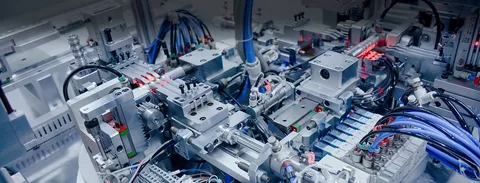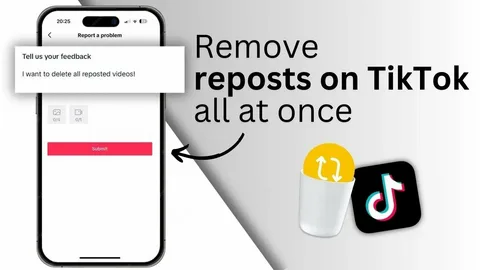Electronic Check Clearing and ECS – Electronic Business Machines
With the advancement in technology, every business is somehow adopting new methods to make systems easier and more effective. One such advancement is in electronic business machines which allow payments, transactions, and clearing services to be done electronically. Particularly, ECS and electronic check clearing are indispensable pieces of business machinery within the modern framework that automate and secure financial processes. In this post, we will cover what ECS is, how one can obtain ECS from their bank, and the steps involved in electronic check clearing.
ECS – what is it?
ECS, or Electronic Clearing Service, is a form of electronic payment that facilitates the automatic transfer of specified amounts of money between bank accounts. ECS is most commonly used for repetitive payments, such as paying utility bills, loan installments, or subscription fees. The greatest advantage is that the recipient doesn’t have to take any action and physical checks or manual payments are substituted with smoother methods, greatly improving efficiency and reducing error.
Two of the main types of ECS that exist:
ECS Credit:
ECS Credit facilitates the crediting of funds to a long list of beneficiaries. Companies for instance may employ this subsystem for payment of salaries, refunds or payment of dividends to employees or customers.
ECS Debit:
This applies to a situation when the utility company would want to use ECS Debit to collect monthly electricity or water bills, something which will require ECS Debit for collecting recurring payments from customer’s accounts.
How do I get ECS from my bank?
For a business or an individual seeking to utilize ECS for recurring payments, the first point is to contact the bank where you hold an account and ask for their ECS services. Most banks have ECS facilities, but the process and requirements can differ.
Submit an application:
Complete ECS mandate form provided by the bank which contains your bank account details, the amount to be debited or credited, and the frequency of transactions.
Provide supporting documents:
You may need to provide proof of identity, address, and authorization along with the application depending on the requirements of the bank for these transactions.
Verification and approval:
Your application will be verified which will lead to setting up of the account with the ECS facility without further issues.
Start using ECS:
With the setup completion you can commence with using ECS for payment transactions that occur periodically. The transactions will be carried out by the bank automatically as agreed.
What is ECS in Simple Words?
In essence, ECS or Electronic Clearing Service is a payment service that permits the automatic transfer of funds between bank accounts. Transactions through ECS are carried out without requiring the physical presence of a check or manual efforts. This service is suitable for repetitive payments like loans or bills, making the process fast and easy.
As an example, phone companies often allow customers to set up a phone bill ECS. This would mean that customers would no longer need to fear defaulting on payments as the amount will be autonomously deducted from the bank account.
What is Electronic Check Clearing?
An electronic check does not require the holder to walk to the bank in order to cash their check. Instead, the paper check is converted to an electronic version and the account of the check’s owner is debited. This accelerates the old and mostly lengthy check-clearing tradition, accommodating for fraud and mistakes as well.
This is how electronic check clearing works: the check bearer presents the paperwork containing the physical check to his bank. It is scanned to enable an electronic image of the check. The electronic image of the check is then sent to the paying bank, also referred as the bank of the individual who wrote the check.
Verification and Approval:
The paying bank checks the details of the check and verifies the appropriate action regarding the funds.
Funds Transfer:
The paying bank sends the funds directly to your bank, where the funds will then be credited to your account.
As previously mentioned, the paying bank electronically clears the check. This method is faster than the old school check clearing, which used to involve physically taking the check to the paying bank.
Benefits of Electronic Business Machines
Some electronic business machines such as ECS and electronic check clearing automated payment processes perform in seconds. This not only saves you time, but it is also beneficial in the long run.
Convenience:
Payments that are automated are much easier as you are able to focus on different tasks.
Accuracy:
An electronic system is less likely to make mistakes unlike a person who is filling out a form physically using checks.
Speed:
Timed payments which guarantee availability of funds for cash flow are done quicker and even more transactions are done faster.
Cost-Effectiveness:
There is less need to use paper and postage these days since most have shifted to electronic systems. This reduces the amount of money spent because there is less manual labor required.
Security:
Transactions today are secured by sophisticated encryption which prevents fraud .
Challenges and Considerations
Like all other devices which are great, they come with some disadvantages. One of these are omitting everything else except the positives of electronic business machines.
Technical Issues:
Power outages or any failure with the system can prove to be quite troublesome with electronic transactions.
Security Risks:
Despite having advanced security systems in place, electronic systems are still susceptible to cyber threats like hacking and phishing.
Dependence on Technology:
The use of electronic systems by businesses and individuals requires the appropriate technology and internet access availability.
Regulatory Compliance:
Relevant laws and regulations, which may differ by region or industry, must be fulfilled for electronic transactions.
Future of Electronic Business Machines
As new technology emerges, the capabilities of electronic business machines will likely increase. Watch out for these trends:
Blockchain Technology:
Payments can be made through blockchain, as it has the potential to transform electronic transactions using a decentralized, secure ledger for recording transaction details.
Artificial Intelligence (AI):
AI can improve electronic systems by automating complicated processes, detecting fraudulent activities, and offering customized insights into a customer’s finances.
Mobile Payments:
Users have increased ease in performing transactions due to the popularity of mobile payment platforms, changing electronic payments for the better.
Integration with IoT:
For electronic transactions, communication between devices can be made easier through the use of the Internet of Things (IoT).
Conclusion
ECS and electronic check clearing are examples of electronic business machines that have changed the transaction-related activities of businesses and individuals. These systems have automated payments and streamlined processes which brings convenience, accuracy, and efficiency.
A business owner aiming to automate repeating payments and an individual wanting to speed up the check-clearing process are equally looking for understanding electronic business machines. Being aware of the directions of technology development helps avoid falling behind as time goes on.




Post Comment